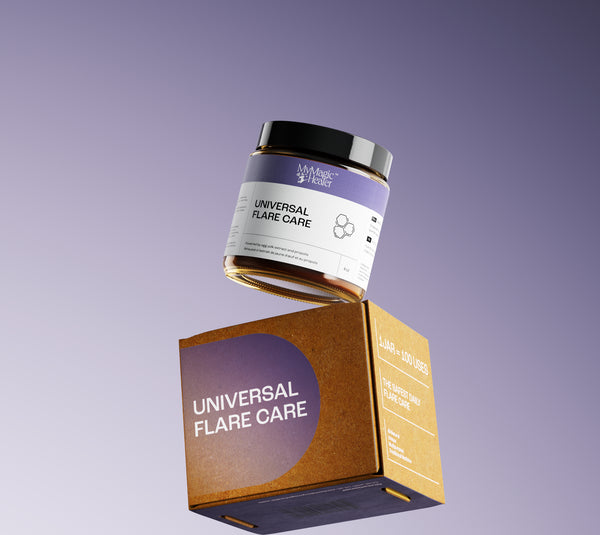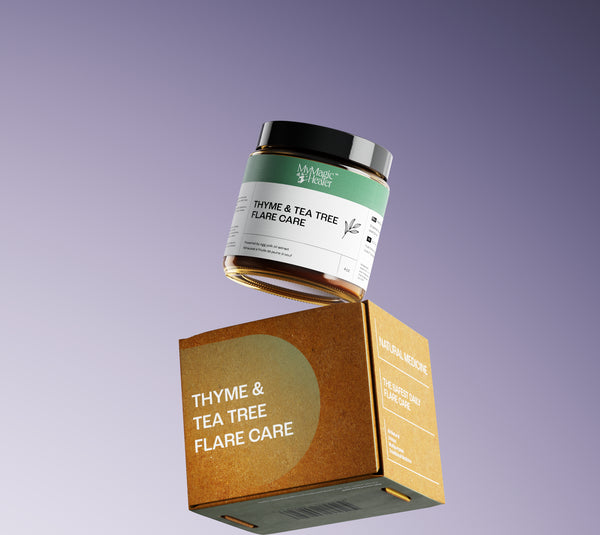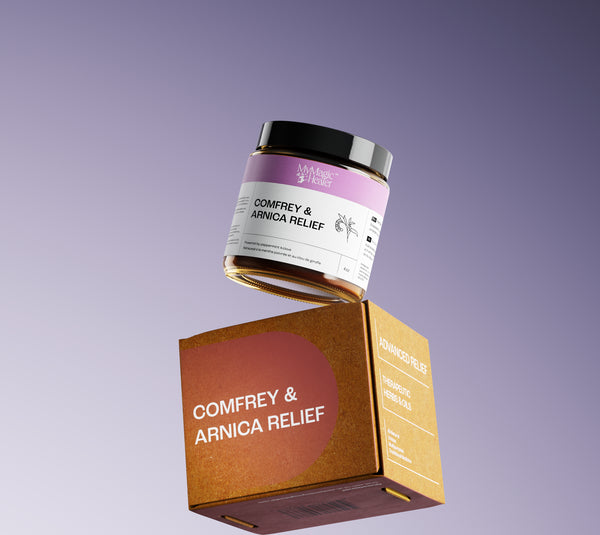You Got a Painful Bump Where? On Your Vulva! What Can It Be?
Got a painful bump… down there? Let’s identify and heal! Private areas can be susceptible to skin inflammations. In women, the external portion of the genitals is known as the vulva. And the vulva is susceptible to skin inflammation and itching, as well as infections.
These types of skin infections can be due to bacteria and other microbes. And because of the environment down there, these body parts are more likely to harbor germs. Today, we're peeling back the mask on dermatological conditions that develop in the nether regions because, let's face it, nothing gets better unless we talk about it.
The first thing to note is that many aren’t aware that developing lumps near the vulva is kind of a normal thing. It definitely doesn’t mean that you are dirty or that you’ve done something wrong. To better understand them, let's explore a few different vulva skin issues that can result in bumps and lumps.

Skin Inflammation Bump Types
Bartholin Cysts – Bartholin's glands provide lubrication for this area and are located on either side of the vaginal opening. Sometimes, these glands can become obstructed due to an infection or injury, which causes fluid to back up.
Boils – Boils are often painful, filled with pus, and can appear anywhere on the skin. They usually form from a bacterial infection in the hair follicle.
Other types of vaginal cysts – All cysts can be filled with air, pus, or other substances. Cysts on the vagina can range from almost unnoticeable to as large as an orange. Most vaginal cysts are benign. These can result from childbirth or other trauma. Or a blockage or an infection.
A pimple – in a private area is no different than a pimple on your face. It can be due to friction, sweat, or menstrual products. Pimples are usually driven by too many dead skin cells, clogged oil glands, and staph and strep bacteria.
Folliculitis – presents as a bunch of tiny red, pus-filled bumps. This is due to infection in the hair follicles.
Knowing the specific cause can help in treating your skin problem effectively. So, let’s discuss the primary identifiers for each inflammation.
Skin Inflammation Bumps
| Inflammation | Location | Appearance | Sensation |
| Bartholin Cyst | Located on the side of the vaginal opening. | Appear as sphere-shaped lumps under the skin. If infected, may become red, painful, and swollen. | Can cause discomfort while standing or sitting and be painful during intercourse. |
| Boils | Can appear anywhere on the body — face, neck, armpit, buttocks, thighs. | Begin as small red lumps that can grow up to 2 inches. May have a white core in the center. | Start firm, gradually fill with fluid, and feel like a water balloon. |
| Other Cyst | Occur on or under the lining of the skin, anywhere on the vagina. | Appear as closed pockets filled with air, fluid, or pus. Infected cysts cause redness and swelling. | Usually hard lumps that may cause some discomfort. |
| Pimples | Can occur anywhere, private area or not. | Small red bumps, often with a white dot at the tip. | Tender to touch, swollen, and may rupture as they fill with fluid. |
| Folliculitis | Common on buttocks, arms, legs, and thighs, but can appear anywhere hair grows. | Looks like a rash with tiny red or pus-filled pimples that may itch or cause discomfort. | Can feel itchy and irritating, sometimes with a stinging sensation. |
What do you think? Were you able to identify with any of these conditions?
Of course, you can have skin issues on your vulva for many reasons. So, if none of these seem right, something else could be happening, and you may need to be seen by a medical professional. Always consider seeing a doctor for a definitive diagnosis, especially if you’re unsure.
If you think you may have one of these conditions, there’s hope!
Skin Inflammation Remedy
MyMagicHealer’s Thyme & Tea Tree Flare Care works wonders for vulva skin care. With the addition of tea tree and thyme essential oils, this salve is uniquely crafted to eliminate painful inflammations in private areas. It targets a wide variety of microorganisms, including common skin bacteria and fungi. It also reduces inflammation and expedites the healing process.

The secret to this formula is in the two herbal oils: thyme and tea tree. Thyme oil is incredibly purifying. It is known for its powerful antibacterial and antiseptic properties and for having a soothing effect. Tea tree oil also has a reputation for calming skin inflammation and itching. And it’s often revered for its potent antimicrobial qualities, which help to eliminate microorganisms on the skin's surface.
Usage Guide
- Gently clean the area.
- Apply a generous layer of the salve to the affected spot.
- Let it absorb. Cover the area with gauze to prevent the salve from being wiped onto your clothes.
There you have it — a super simple and easy way to manage skin inflammations in those private areas. You don’t even have to tell anyone about it (unless you want to!). Of course, we always love hearing your healing stories — so if you feel like sharing, drop us your comments. Infections in private areas can be discomforting and sometimes embarrassing, but remember: they’re common and mostly treatable!










